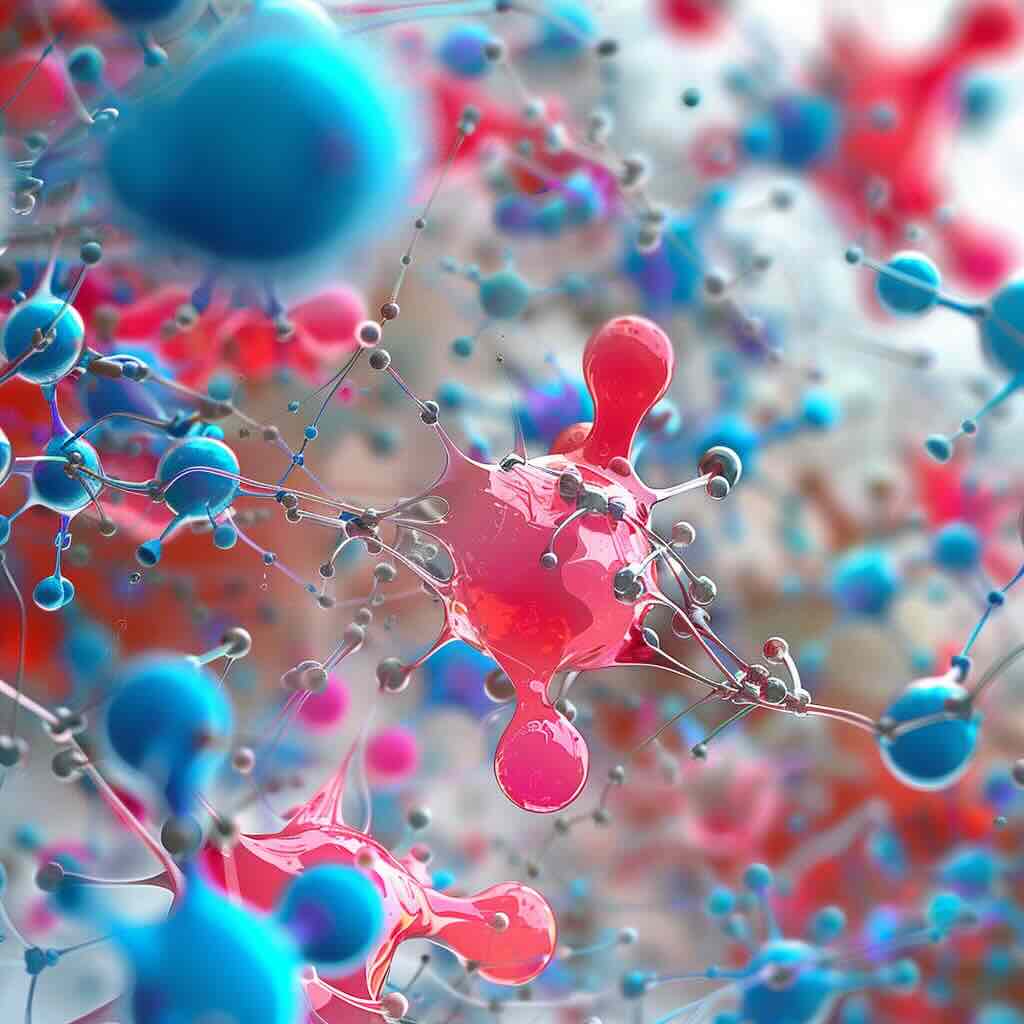As we age, the quest for youthful vitality becomes a priority for many. From skincare routines to dietary supplements, the anti-aging industry is booming. One emerging topic in this space is Khavinson Peptides, a class of short-chain peptides. With dozens of papers showing their potential to slow aging and promote longevity, these bioregulators are becoming more popular each year.
Are Khavinson Peptides truly the secret to youthful aging? Let’s dive into what science says, exploring their origins, mechanisms, and evidence-backed benefits.

Understanding Khavinson Peptides: Impact on Gene Regulation and Health
Khavinson Peptides, named after Professor Vladimir Khavinson, are short chains of amino acids that play a crucial role in regulating gene expression. Peptide bioregulators were discovered over 40 years ago at the St. Petersburg Institute of Bioregulation and Gerontology. The original application was for military medical service. Specifically to help soldiers to be able to stay strong and maintain biological functions in harsh conditions. Amazing for the molecular structure of a short chain amino acids.
In a surprise discovery the gerontological aspects showed that peptide bioregulators could help increase human life span. This sparked 40 years of gerontological research through experimental and clinical studies into different peptides. One of the key differences according to molecular genetics is how the biologically active substances support tissue growth.
Unlike typical supplements, Khavinson Peptides are tissue-specific. These means they help initiate protein synthesis in specific organs or systems—like the immune system, brain, or endocrine system. This precision has earned them a reputation as "gene switches" that combat age-related decline at a cellular level.
a pioneer in bioregulation and gerontology, are short-chain amino acid sequences designed to regulate gene expression and protein synthesis.
How Do Khavinson Peptides Work?
Aging is defined by a decline in protein synthesis, which affects everything from skin elasticity to immune response. What happens is our bodies have a biological reserve of these small peptides. As we get older, that biological reserve decreases. This causes a decrease in protein biosynthesis.
Peptide bioregulators aim to reverse this by interacting with DNA to "turn on" genes responsible for producing vital proteins. They are physiologically active peptides that interact with cellular receptors, enzymes, and other molecules to initiate protein synthesis. By interacting with cellular receptors and enzymes to to initiate protein synthesis, the body is able to restore some of the biological reserve.
Understanding this process has created other treatments such as STEM cells, which are common in the European region. Other forms of peptide therapy are being researched as peptides have also shown the ability to regulate proliferative activity.

Peptide Bioregulators Research Into Gene Expression
Professor Khavinson’s research spans 4 decades, with over 775 publications and 196 patents. The Institute of Bioregulation and Gerontology was established in 1992 to study the mechanisms of aging and develop new medical technologies. The focus of the Saint Petersburg Institute of Bioregulation is to continue to develop clinical gerontology.
Traditional medical sciences are beginning to accept peptide regulation and use various forms of peptides to deal with the proliferative processes in cells. These short peptides are being used in various forms to support physiological processes and deal with age related diseases. The biological properties of peptide therapy and their gerontological aspects make them an ideal choice for many age groups.
Peptide regulators play crucial roles in the transfer of information within cells and tissues, between tissues and organs in the body, or between different organisms. They are produced by all species belonging to the different phylums, from bacteria to mammals. It's a key component during cell differentiation.
Clinical Applications
Peptide bioregulators have been used in clinical practice to prevent and treat age-related diseases in elderly patients. They have been shown to be effective in improving cognitive function, reducing inflammation, and promoting tissue regeneration.
Peptides are also used in Stem cells and to support the neuroendocrine system.
Peptide Therapy and Youthful Aging
In the last 5 years, more search has been centered around physiologically active peptides and their unique method to improve life span. Various peptide preparations have shown the ability to delay aging in some of the latest research.
Peptide Preparations For Longevity
Particular research has been focused around the pineal gland and it's ability to improve human life span. Peptide geroprotectors such as the pineal gland preparation epithalamin peptide family has been studied extensively in aged male rats as well as humans to control the free radical process. In randomized controlled trials epithalimin delayed age related changes to the immune and reproductive systems.
Endoluten is a bovine pineal gland supplement and has shown the ability regulate the body’s neuroendocrine and immune systems. Endoluten improves melatonin levels and sleep patterns. It may also help remove calcium deposits from the pineal gland. This may enhance the body's ability to fight off infectious diseases as well.
Pineal peptides help support healthy telomeres, which are the protective caps on your DNA. The peptide signaling helps improve sleep patterns and melatonin production.
This peptide supports healthy telomeres, the protective caps on your DNA, promoting longevity and slowing the effects of aging.
Safety and Efficacy
Peptide bioregulators have been shown to be safe and effective in clinical studies. It's estimated that over 20 million people have used peptide bioregulators without any known side effects. The safety and efficacy of peptide bioregulators make them a promising therapeutic option for various diseases.
Conclusion- Bioregulation and Gerontology On The Rise
Peptide bioregulators are a promising therapeutic option for various diseases from a viral infection to diabetic retinopathy. They are starting to become common in clinical practice for naturalpathic doctors and practitioners focused on lengthening human life span. The gerontological aspects are hard to ignore.
We see bioregulating peptide therapy continuing to expand as we continue to see the links between genome peptide regulation and increased lifespan. The Pineal gland preparation epithalamin research has shown peptide geroprotectors could be key in helping the global aging population extend lifespan.
Further research is needed to fully understand the molecular mechanisms of peptide bioregulators and their potential therapeutic application. While peptide bioregulators are widely used in the European region, there is not as widespread use in the US.
We believe this is about to change.

Frequently Asked Questions
What was Dr. Khavinson's Background?
Dr. Khavinson is largely credited with development of bioregulating peptide therapy. Dr. Khavinson graduated from Kirov Military Medical Academy then started his clinical practice. He was President of the International Association of Gerontology and Geriatrics (European Region). He was the chair of the Gerontological Society and Health Committee in Europe. Dr. Khavinson's focus was on helping the global aging population with peptide based pharmaceuticals. Dr. Khavinson's work to increase human life span is foundational to the anti aging revolution. His work on restoring retinal functions has been key in helping others improve eyesight.
Is it safe to use peptides every day?
One of the most powerful things about peptide bioregulators is unlike other dietary supplements, they don't need to be used everyday. Peptide preparations are typically only taken 1 to 2 times per year for a course of 10 or 30 days. Different age groups such as elderly patients or individuals with cell proliferation issues may take them more frequently.
The key difference is these short chain amino acids molecular mechanisms help regrow tissues. This is why researchers are excited about these anti aging drugs.





